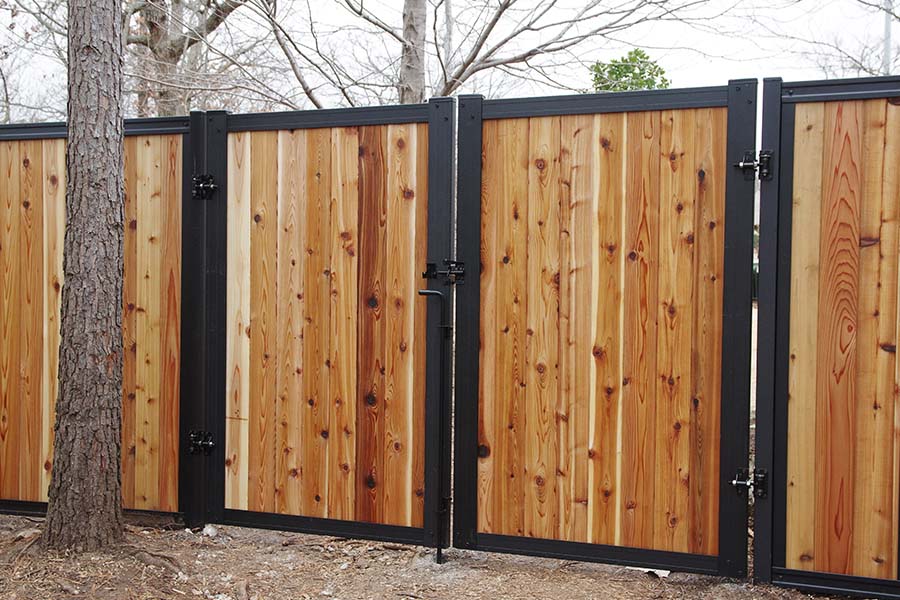Featured

When intending to set up a fence around your residential property, one of the very first actions is comprehending the allowing requirements in your area. Right here's what you need to recognize concerning getting the needed authorizations for your fencing installation.
Why Do You Need a Permit for a Fence? An authorization is typically needed for fencing installments to make sure conformity with regional building regulations, zoning legislations, and safety policies. Allowing aids neighborhood authorities keep uniformity in area looks, safety and security, and environmental considerations. It additionally ensures that the fencing does not conflict with utility lines or public areas, which it sticks to height and limit restrictions.

Usual Authorizations Required for Fencing Setup. Structure Authorization. The majority of areas need a building permit for fencing setup, particularly if the fence surpasses a specific height (typically over 6 feet) or is made from non-standard materials. This authorization guarantees that your fence conforms with local building regulations. In some areas, the structure department will certainly check the website to guarantee that the fence satisfies security and architectural criteria.
Zoning Permit. Zoning authorizations are made to make certain that your fence follows neighborhood zoning laws, including troubles from building lines, easements, and rights-of-way. Zoning laws vary from city to city, and in many cases, your fencing may need to be set back a specific number of feet from the walkway or roadway. If your fence is in a historic area or other specially marked areas., a zoning authorization might also be necessary.

Fence License. In some areas, a particular "fencing license" might be required. When developing a fencing for residential homes, this is generally required. The regional government may specify the height, material, and style of the fence to guarantee it mixes well with the bordering community. As an example, some cities limit chain-link fence front yards or have particular guidelines for personal privacy fences.
HOA Authorization. You might need approval before installing a fencing if your home is part of a house owners organization (HOA) HOA standards usually consist of specific policies regarding the type, elevation, color, and products for fencings to keep the community's visual appeals. HOA laws can be more stringent than city codes, so always examine their standards before moving on.
Easement or Utility Licenses. If your fencing will be near or throughout an easement (such as an utility easement), you might require to acquire authorization from the utility company or other entities that regulate the land. This is particularly crucial if you intend to dig for fencing messages, as it ensures you will not damage underground utilities like gas, water, or power lines.
Just How to Figure Out What Allows Are Needed. The very best method to figure out which licenses are necessary for your fencing installment is to call your neighborhood structure division or metropolitan workplace. They can provide you with certain details regarding requirements in your location. Right here are a couple of steps you can take to discover:
Inspect the City or Area Website: Many city governments supply info about fencing setup permits online. Seek structure or zoning areas on their website. Call or Check Out City Government Offices: If the details is not easily offered online, calling or going to the local workplace personally can clarify what's required. Speak With a Professional Professional: If you're overloaded or uncertain by the process, a local service provider or fencing setup business can aid in browsing the allowing process, as they know with regional laws. What Happens If You Do Not Get a License? Falling short to get the required authorizations can result in a variety of consequences. In many areas, you could deal with penalties, and your fence may be ordered to be eliminated. In addition, if you sell your property in the future, the absence of proper licenses might be a warning for purchasers and affect the sale. Permitting ensures that your fence is compliant and assists stay clear of future problems.
Final thought. Before setting up a fencing around your home, it's vital to check whether a license is needed in your area. Building authorizations, zoning permits, HOA authorization, and utility consents may all play a duty in your fence installation process. Making the effort to research and obtain the required permits will not just ensure that you're adhering to regional regulations, however likewise help secure your financial investment and preserve the integrity of your building.
Latest Posts
Signs Your Commercial Roof Needs Replacement: A Proactive Approach
Published Dec 24, 24
1 min read
Handling Commercial Roof Damage After a Storm: Emergency Steps
Published Dec 24, 24
3 min read
Just How to Properly Take Care Of Your Plastic Flooring
Published Dec 24, 24
1 min read